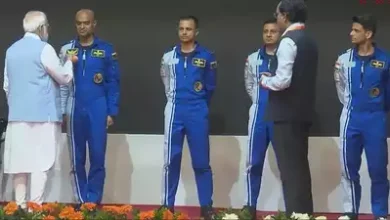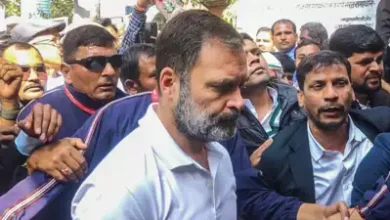Pepsi’s appeal against the revocation of its IPR on a potato variety is dismissed by the Delhi High Court
The Delhi High Court on Wednesday rejected PepsiCo India Holdings’ appeal against the suspension of its Plant Varietal Protection (PVP) certificate for a certain potato variety, in a landmark decision.
The Protection of Plant Varieties and Farmers’ Rights Authority issued the revocation decision in December 2021 in response to an application submitted by farmers’ rights advocate Kavitha Kuruganti disputing PepsiCo’s allegation of infringement.
Kavitha Kuruganti’s motion for revocation was motivated by PepsiCo India Holdings’ vexatious lawsuits against a number of potato growers in Gujarat in 2018 and 2019 on the grounds of IPR infringement. However, because to strong public opposition in May 2019, it was obliged to unconditionally drop all of those cases.
The Delhi High Court said that it “found no merit in the present appeal”. Farmers’ rights advocates saw it as a partial win for Indian farmers.
Farmers’ rights advocates claim that this is likely the first case involving revocation to be decided by an Indian court under the Protection for Plant Varieties and Farmers’ Rights (PPV&FR) Act 2001.
“The Act is a highly special piece of sui generis Indian law that is unmatched anywhere else in the world. To comply with the WTO TRIPS Agreement, Indian legislators devised this unique piece of legislation. In a press release, Kavitha Kuruganti said, “It is an Act that, through Section 39(1)(iv), incorporated seed freedoms for farmers with respect to their entitlement to save, use, sow, resow, exchange, share, or sell their farm produce, including seed of a variety protected under this Act in an unbranded manner.
The International Treaty on Plant Genetic Resources for Food and Agriculture (ITPGRFA), the Convention on Biological Diversity (CBD), and the United Nations Declaration on the Rights of Peasants and Other People Working in Rural Areas (UNDROP) are among the international treaties that recognize farmers’ rights, she continued.
PepsiCo India’s applications for PVP registration in 2011 and 2012, its actions against a number of Gujarat potato farmers in 2018 and 2019 and the public interest in those actions, as well as the interpretation of certain provisions of India’s Protection of Plant Varieties and Farmers’ Rights Act 2001, were all the subject of PIH’s appeal to the Delhi High Court.
“It is good that the Delhi High Court’s decision upheld the revocation order on at least three grounds—inaccurate information regarding the date of first sale, ineligible registrant, and failure to provide necessary documents, which are Sections 34(a), 34(b), and 34(c) of the Act—according to Justice Navin Chawla’s ruling,” Kuruganti said.
“However, it is regrettable that Justice Chawla did not uphold the public interest infringement when it comes to the vexatious lawsuits filed against farmers in Gujarat. In its order from December 3rd, 2021, the Authority recognized that harassing farmers was relevant to the current problem. However, Justice Chawla believes that the Section 34(h) reasons for revocation have not been sufficiently established in his opinion. Farmers’ rights activists said that Section 34(h) deals with revocation on the basis that granting the certificate of registration was not in the public interest.
“It is a matter of grave concern that in three proceedings so far (when PepsiCo was forced to unconditionally withdraw its cases against Gujarat farmers in May 2019 through a public campaign, later when the certificate of registration was revoked in December 2021, and in the current judgement that dismissed PIH’s appeal), the issue of vexatious litigation against farmers has not been squarely addressed by adjudicating authorities as a matter of public interest,” Kurug said.
“Pepsi sued multiple potato growers in Gujarat invectively and unlawfully in 2018 and 2019. Pepsi has a plant varietal certificate on a potato cultivar called FL-2027. According to Gujarati activist Kapil Shah, who has been involved in the defense of the potato farmers since the beginning, the company did this despite the fact that Indian law regarding farmers’ seed rights is very clear in its provisions entitling farmers to access any seed variety they would like to, including protected varieties.
It seems that vigilant individuals must continuously defend the Authority’s obligations under Section 8 to safeguard farmers’ rights. However, the authority may utilize this ruling to reaffirm and defend the rights of farmers above those of IP registrants, in accordance with the language and spirit of the law, Shah said.







